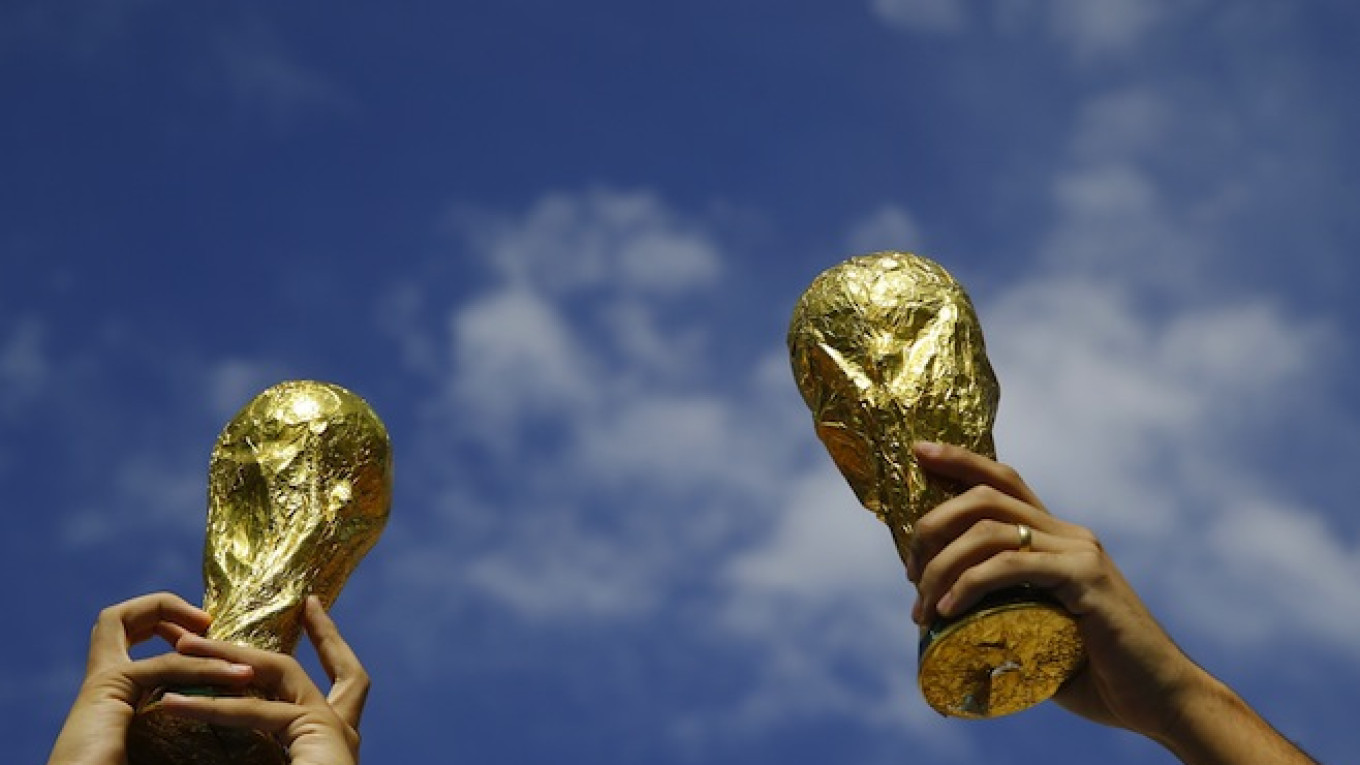World Cup organizers in Russia have defended the possibility of housing teams in 2018 in the volatile North Caucasus regions, including Chechnya.
The Chechen capital of Grozny is on a preliminary list of team bases for the tournament despite an incident in December when Islamist militants waged a gun battle with police that left at least 20 dead. Another possible city is Makhachkala in the neighboring region of Dagestan, which also has a long-running Islamist insurgency.
In recent years, the Union of European Football Associations forced local club Anzhi Makhachkala to hold home European games in Moscow, citing security concerns in Makhachkala.
"There will be inspections but I'm sure there are teams that might prefer Grozny or Makhachkala or other cities where they have good relations with the administration," World Cup organizing committee CEO Alexei Sorokin said on Wednesday. "We have full assurances from the regional authorities that security will be organized at the highest level."
Cities hosting training bases require approval from FIFA, Sorokin said, adding that the process is focused on the suitability of hotels.
The idea of hosting a team in cities such as Grozny has also received support from Russian Sports Minister Vitaly Mutko as a way to spread the World Cup's legacy around Russia. Mutko said FIFA backed the inclusion of Grozny on a list of sites for team bases. "Grozny, they supported it and they liked it," he told a news conference on Tuesday. FIFA told the AP in a statement that it and Russian organizers "are still in the process of developing the team base camp catalog for the 2018 World Cup. As such, we are not in a position to give any more details for the time being."
Russia fought two wars against Chechen separatists in the 1990s and early 2000s. The security situation has quietened under the rule of regional head Ramzan Kadyrov, who is accused of numerous human rights abuses. Kadyrov previously pitched Grozny as a candidate to host World Cup games, although it was not put forward by Russia during the bidding process.
Grozny and Makhachkala host Russian league clubs which have had few soccer-related security incidents in recent years. In January, an Anzhi Makhachkala youth team player, 20-year-old Gasan Magomedov, was shot dead near his home in Dagestan in what Russian media later reported was a case of mistaken identity.
While Terek Grozny's players live in Chechnya, Anzhi based its players in Moscow during a period when it spent big to acquire world-class players such as Samuel Eto'o and Willian.
The players flew into Makhachkala for home games before returning to Moscow. Also on Wednesday, Mutko said he opposed the idea of giving one of Europe's 13 World Cup qualifying places to a team from another continent.
The idea may be discussed at next month's meeting of the FIFA executive committee, of which Mutko is a member, after FIFA President Sepp Blatter said he believed CONCACAF, which covers North and Central America and the Caribbean, deserved a fourth automatic qualifying spot. Mutko said reallocating one of Europe's places could mean a weak team from another continent qualifying and then suffering heavy defeats at the World Cup.
"European countries have earned the number of places that they have at the World Cup," Mutko said. "It's the World Cup. The level should be fairly decent so that we don't get those kinds of sensational results."
Mutko also said Russia was monitoring the status of a World Cup stadium in the western city of Kaliningrad.
Construction of the stadium is set to begin only in August, less than three years before the tournament, following a string of political disputes over its location. "We are already in the kind of zone that's very tough and critical," he said of the project's schedule.
A Message from The Moscow Times:
Dear readers,
We are facing unprecedented challenges. Russia's Prosecutor General's Office has designated The Moscow Times as an "undesirable" organization, criminalizing our work and putting our staff at risk of prosecution. This follows our earlier unjust labeling as a "foreign agent."
These actions are direct attempts to silence independent journalism in Russia. The authorities claim our work "discredits the decisions of the Russian leadership." We see things differently: we strive to provide accurate, unbiased reporting on Russia.
We, the journalists of The Moscow Times, refuse to be silenced. But to continue our work, we need your help.
Your support, no matter how small, makes a world of difference. If you can, please support us monthly starting from just $2. It's quick to set up, and every contribution makes a significant impact.
By supporting The Moscow Times, you're defending open, independent journalism in the face of repression. Thank you for standing with us.
Remind me later.


